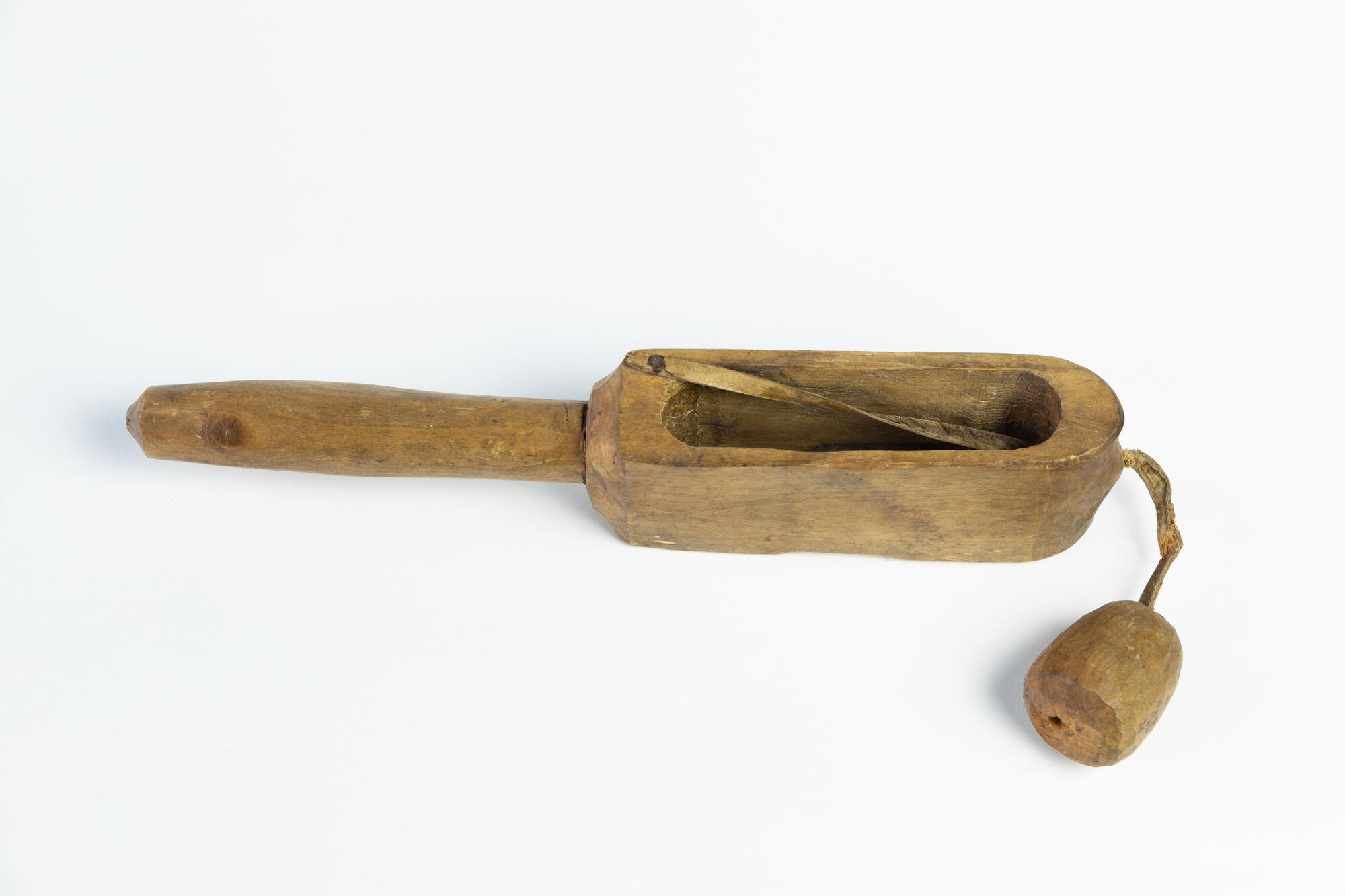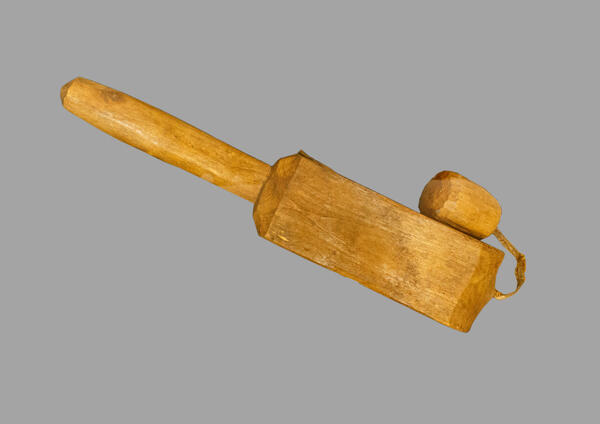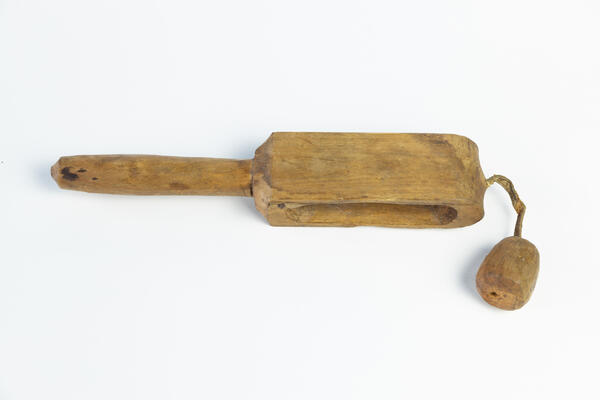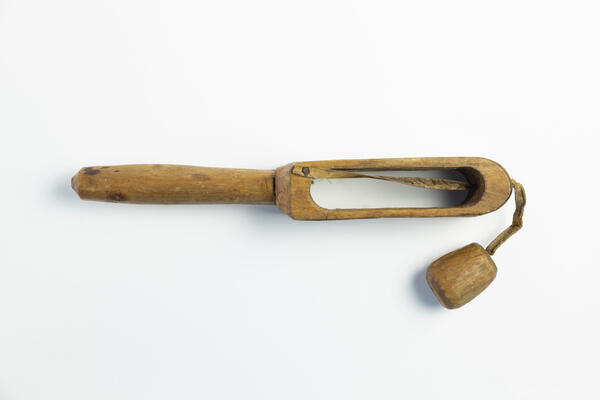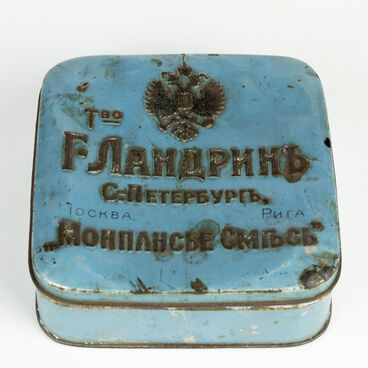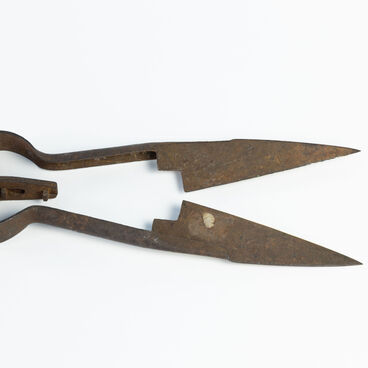A clapper is a watchman’s tool for signaling. It is a hollow wooden bar with a handle and a ball on a linen or leather cord. When the ball hits the walls of the clapper, it makes a loud dull sound. This tool was used by night watchmen for patrolling towns and villages. The earliest watchman’s devices for producing a rattle were found during excavations in Veliky Novgorod and dated to the 11th–13th centuries. In the 19th century, the clappers were used in every Russian village. The exhibition of the Glazov Museum of Local Lore presents a clapper from the Vyatka Governorate.
The clapper is displayed in the hall dedicated to Pyotr Fyodorovich Tchaikovsky, the grandfather of Pyotr Ilyich Tchaikovsky. Pyotr Fyodorovich was the first of the Tchaikovsky family to settle in Udmurtia, where the great composer was later born. A government clerk, Pyotr Fyodorovich Tchaikovsky was appointed mayor in the town of Glazov in the Vyatka Governorate and served in this position for 22 years. Glazov at that time was a very young district town, founded by decree of Catherine II. Previously it was the village of Glazovo. Less than 700 people lived in the town and there were less than 100 buildings, including old and new churches, merchants’ shops, a house of the town merchant’s society and an administrative building. Most of the buildings were dilapidated and wooden.
The entire Glazov was guarded by a full-time military team of eight people. At night, the soldier on duty walked around the town, looking for thieves, wolves and foxes. Fires posed the greatest danger to the town. Wooden houses with clapboard roofs could quickly burst into flames as rushlights were extensively used to lit all the houses. The fire could spread very quickly and destroy the whole town if the alarm was not raised in time. The soldier patrolled the town all night, occasionally ringing his watchman’s clapper. By doing so, he made it clear that he was not asleep and was doing his job properly. If the watchman noticed something, he used his clapper to produce loud sounds that the entire town could hear, notifying about the trouble and calling residents to help.
There are several ditties that speak to the popularity of the clapper, for instance.
The clapper is displayed in the hall dedicated to Pyotr Fyodorovich Tchaikovsky, the grandfather of Pyotr Ilyich Tchaikovsky. Pyotr Fyodorovich was the first of the Tchaikovsky family to settle in Udmurtia, where the great composer was later born. A government clerk, Pyotr Fyodorovich Tchaikovsky was appointed mayor in the town of Glazov in the Vyatka Governorate and served in this position for 22 years. Glazov at that time was a very young district town, founded by decree of Catherine II. Previously it was the village of Glazovo. Less than 700 people lived in the town and there were less than 100 buildings, including old and new churches, merchants’ shops, a house of the town merchant’s society and an administrative building. Most of the buildings were dilapidated and wooden.
The entire Glazov was guarded by a full-time military team of eight people. At night, the soldier on duty walked around the town, looking for thieves, wolves and foxes. Fires posed the greatest danger to the town. Wooden houses with clapboard roofs could quickly burst into flames as rushlights were extensively used to lit all the houses. The fire could spread very quickly and destroy the whole town if the alarm was not raised in time. The soldier patrolled the town all night, occasionally ringing his watchman’s clapper. By doing so, he made it clear that he was not asleep and was doing his job properly. If the watchman noticed something, he used his clapper to produce loud sounds that the entire town could hear, notifying about the trouble and calling residents to help.
There are several ditties that speak to the popularity of the clapper, for instance.
